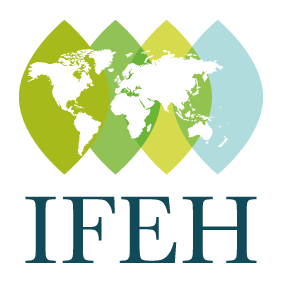GOING BEYOND: INCORPORATING INTERNATIONAL FIELD TRIPS INTO ENVIRONMENTAL HEALTH CURRICULA - AN AUSTRALIAN PERSPECTIVE
Keywords:
field trips, experiential learning, environmental healthAbstract
Background: The role and value of fieldtrips in environmental health curricula is under-researched. This is despite the need to consolidate key domains of knowledge and applied skills in students, to equipt them to undertake field-based investigations. Local excursions serve a purpose in exposing students to environmental health practices. However, with increasing globalisation and the risk-multiplying effects of climate change, the importance of providing students with first-hand experiences with issues that transcend national boundaries such as refugees, bio and food security, plastic and e-waste and pandemics, is elevated. The added value of experiential learning in different geographical and cultural settings is intuitive; they enable students to apply and challenge theories taught within classrooms and to reflect on new educational and social experiences These generic benefits are recognised by funding schemes, but the tightening of resources available to support fieldtrips, it is important to examine and document how they add value to the education journey of environmental health students.
Aim: To explore students’ learning through participation in international field trips in South East Asia, focussing on environmental health learning outcomes
Methods: This study adopted a naturalistic inquiry approach and utilised narratives recorded in reflective journals and through post field trip recollections by both student and staff participants. Thematic analysis was used to explore anticipated and lived learning experiences, challenges and the extent of transformational learning.
Results: Students reflected on both amazing and confronting experiences that challenged their preconceptions and broadened their worldviews. Longer lasting impacts were varied. The key recollections by staff included the administrative burden of planning the fieldtrips and the rewards associated with unplanned teachable moments and witnessing sudden insights by students.
Conclusion(s): International field trips have the potential to facilitate transformative learning in environmental health students. Managing team dynamics and student engagement and optimising learning opportunities was demanding for staff but considered worthwhile. The most challenging aspects were associated with securing funding, filling sponsored places, pivoting in response to unforeseen incidents and the administrative burden.
Presenter e-mail: Z.Murray@griffith.edu.au


